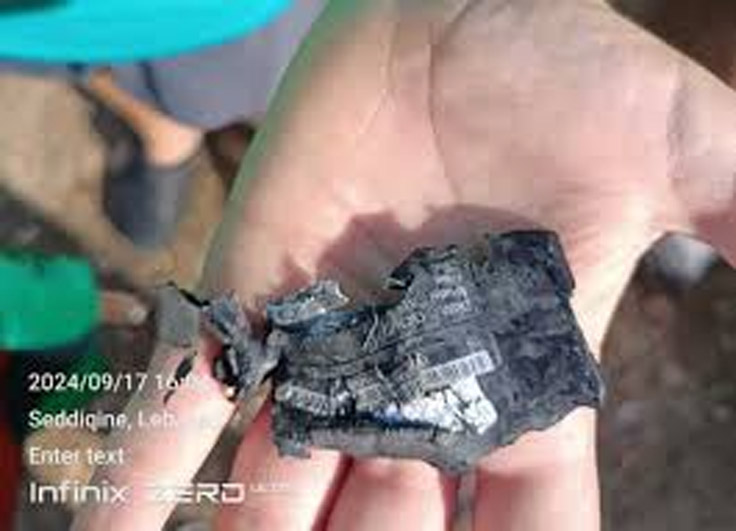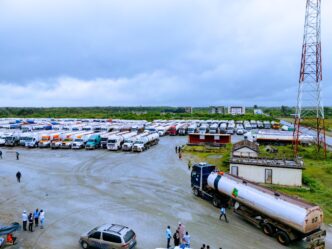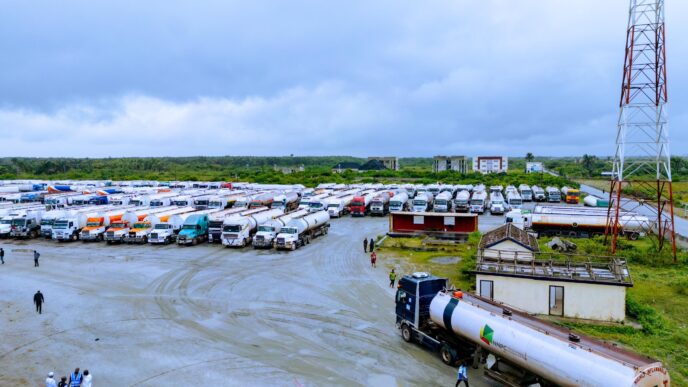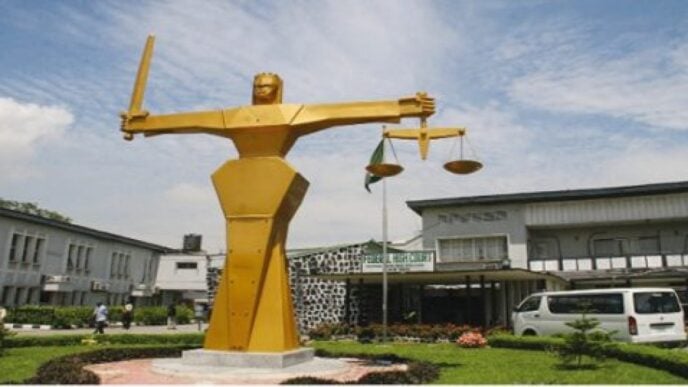In an era dominated by cutting-edge technology, an unexpected incident involving seemingly obsolete devices has sent shockwaves through the international community. The recent explosions of pagers in Lebanon have not only altered the political landscape of the Middle East but also threatened to reshape the global technology industry and international relations.
In recent months, the Lebanese government placed a substantial order for pagers to bolster its communication infrastructure. This decision, influenced by security concerns over vulnerabilities associated with more modern technologies, inadvertently set the stage for a crisis that is likely to have far-reaching consequences.
The choice of pagers was a strategic move prompted by previous incidents where mobile phone signals were used to target Hezbollah leaders. The pagers were reported to be sourced from an American-controlled Taiwanese company and distributed across various government sectors, including to Hezbollah, which comprises approximately one-third of the Lebanese government. However, according to unconfirmed reports, these pagers were covertly modified to include small explosive devices. The subsequent detonations resulted in numerous casualties, including women, children, and medical professionals, turning a bid for secure communication into a tragedy.
Prior to this incident, pagers were generally considered low-risk devices, rarely subject to the stringent security measures applied to more advanced communications technology. Their supply chains weren’t scrutinised like those of smartphones or computers because, until now, there was no precedent for pagers being used as explosive devices.
Advertisement
The repercussions of this incident are multifaceted and far-reaching. For starters, there should be political ramifications in Lebanon, but Hezbollah’s unpleasant history with the Sunni and Christian populations may make it harder for them to enjoy a resurgence in backing even though the incident affected civilians across diverse communities.
There will surely be a loss of trust in the supply chains associated with American and European technology throughout the Middle East and Asia, prompting countries and organisations in these regions to reevaluate their technology partnerships and scrutinise their supply chains with unprecedented rigour to limit their vulnerability.
This could reshape the global tech industry in several key ways. As trust in Western technology wanes, countries may increasingly turn to Chinese tech companies as alternative suppliers which could significantly accelerate China’s growing influence in the global tech sector as they position themselves as politically neutral parties with an equal level of technology
Advertisement
The incident may hasten the move away from reliance on the US-operated GPS. Russia’s transition to GLONASS, China’s development of BeiDou (BNSS), and India’s work on IRNSS could see accelerated adoption and development, leading to a more fragmented global navigation landscape.
Enhanced Supply Chain Security should also result from this with stricter controls and verification processes for technology kicking in in response worldwide. Beyond potential market share losses in Middle Eastern and Asian markets, companies from the West could encounter increased regulatory scrutiny and legal challenges in affected countries.
A fundamental revaluation of what constitutes a ‘high-risk’ technology will be undertaken and devices and systems previously considered benign may now be subject to much more rigorous security protocols, potentially affecting production costs and timelines across the tech industry.
But this incident’s most profound long-term consequence is its potential to catalyse a broader fragmentation of the global tech industry. As nations seek to reduce their dependence on technologies they perceive as potentially compromised, we may witness the emergence of parallel tech ecosystems with limited interoperability.
Advertisement
This fragmentation could reshape the technological landscape, leading to a world where regional tech spheres operate semi-independently, challenging the current model of global tech standards and cooperation.
This potential fragmentation of the global tech industry would not exist in isolation. The ongoing Israel-Palestine conflict, and particularly the perceived disparity in how Western powers have responded to it compared to other global conflicts, has become a significant factor in accelerating geopolitical fragmentation. The inability or perceived unwillingness of the United States and European nations to respond to Israel’s actions with the same level of firmness as they have to other international conflicts has not gone unnoticed.
The perceived double standard in how Western powers approach the Israel-Palestine conflict versus other global conflicts is fueling disillusionment with the current world order. This is particularly evident in the Global South, where there is a growing sentiment that the rules-based international order is selectively enforced.
This incident will further fuel efforts to create an alternative global establishment, largely built around the Global South, with Russia and China positioning themselves as major players through the BRICS. The perceived inconsistency in applying international law and human rights standards is eroding trust in Western-led international institutions, and many countries are seeking alternative forums for international cooperation and conflict resolution.
Advertisement
For example, the efforts to ban the Russian media outlet RT in various Western countries following the Ukraine invasion and the recent efforts to have those of us from the Global South follow suit have brought the issue of media control and information warfare into sharp focus. While many argue that these bans are justified due to RT’s alleged role in spreading disinformation, people in various African capitals that I have been in point out that similar actions were not taken against U.S. media during controversial military interventions in Vietnam, Iraq, or Libya. This asymmetry in treatment has led some countries to question the impartiality of global information networks and has accelerated efforts to create alternative media ecosystems, further contributing to global fragmentation.
It appears that the US and its Western allies have made a habit of letting their actions be guided by their individual national goals rather than the principles espoused as the guiding rods of the extant International order they built and currently lead.
Advertisement
This is also highlighted by the varying standards applied to electoral processes worldwide. For example, the speed at which the U.S. government has accepted results from terribly flawed elections in countries like Algeria and Nigeria, despite many credible reports of irregularities, contrasts sharply with its approach to elections in other nations like Venezuela. The inconsistent response to electoral irregularities across different countries can be seen as realpolitik in action. However, it also fuels narratives of Western hypocrisy and can undermine faith in the global democratic order.
This perceived inconsistency has led some nations to question the legitimacy of Western-led democracy promotion efforts and strengthened calls for alternative models of governance and international relations. We are presently seeing the emergence of a parallel international order that challenges the post-World War II Western-led system. While it is still in its early stages, this new order is gaining momentum.
Advertisement
This emerging alternative establishment is not without its challenges. It faces issues of internal cohesion, varying national interests among its potential members, and the economic and technological dominance that the West still maintains.
As this alternative order takes shape, it has the potential to alter global power dynamics fundamentally. It could lead to a more fragmented international system, with competing blocs operating under different norms and standards. This fragmentation could complicate global cooperation on critical issues like climate change, nuclear proliferation, and pandemic response.
Advertisement
The challenge for the international community will be to find ways to bridge these emerging divides and create a more inclusive global order that can address the concerns of all nations while maintaining the stability necessary for addressing global challenges.
These issues and the tech fragmentation discussed earlier point to an accelerating trend towards a more multipolar world. As trust in U.S.-led international systems erodes, competing blocs, each with its own technological infrastructure, media ecosystems, and geopolitical alliances, are likely to emerge.
Dr Yuki Tanaka, a geopolitical analyst at Tokyo University, observes: “What we’re witnessing is not just a fragmentation of the tech industry, but a broader realignment of global power structures. Countries are increasingly seeking alternatives to U.S.-centric systems across multiple domains – technological, informational, and diplomatic.”
This shift could have profound implications for global governance, international trade, and conflict resolution. The world may be moving towards a more fragmented international order, where different blocs operate under different rules and standards, potentially increasing the risk of misunderstandings and conflict.
The Lebanon pager incident is a stark reminder of the intricate interplay between technology, geopolitics, and national security. It also highlights the challenges of securing seemingly low-risk technologies in an era of evolving threats. As trust in Western tech faces challenges across the Global South, a significant realignment of the global tech landscape appears increasingly likely, with Chinese and other non-Western companies poised to fill the emerging void.
This watershed moment calls for a collective reassessment of approaches to technology procurement, security protocols, and international cooperation. It also demands a more nuanced understanding of culpability in an interconnected world where overlooked vulnerabilities can have catastrophic consequences.
As governments, tech companies, and consumers worldwide grapple with these challenges, the decisions made in the coming months and years will be crucial in shaping the future of global technology and international relations. The tech industry stands at a crossroads, and the path forward will require careful navigation, innovative solutions, and a renewed commitment to building trust and security in our increasingly interconnected world – not just for cutting-edge technologies but for all devices that play a role in our communication infrastructure.
Moreover, addressing the root causes of geopolitical fragmentation will be crucial. This may involve rethinking approaches to international media regulation, reassessing the criteria for validating electoral processes globally, and working towards a more inclusive global governance model. We hope to build a more stable and equitable global order in the face of technological and geopolitical upheavals only by tackling these underlying issues.
In the wake of the Lebanon pager incident, one thing is clear: the global tech landscape and geopolitical order are on the brink of a significant transformation. The incident has exposed vulnerabilities not just in our technological systems but also in our international diplomatic and governance structures.
As we move forward, the challenge will be to navigate this increasingly fragmented world while striving for a balance between national interests and global cooperation. The decisions made by governments, tech companies, and international bodies in response to these challenges will shape the future of the tech industry and global politics and international relations for decades to come.
The path ahead is uncertain, but it offers an opportunity to reassess and rebuild our global systems in a more equitable, secure, and resilient way. As we stand at this crossroads, our choices will determine whether technological and geopolitical fragmentation leads to increased conflict or becomes a catalyst for a more diverse and balanced global order.
Nwanze is a partner at SBM Intelligence.
Views expressed by contributors are strictly personal and not of TheCable.
Add a comment













